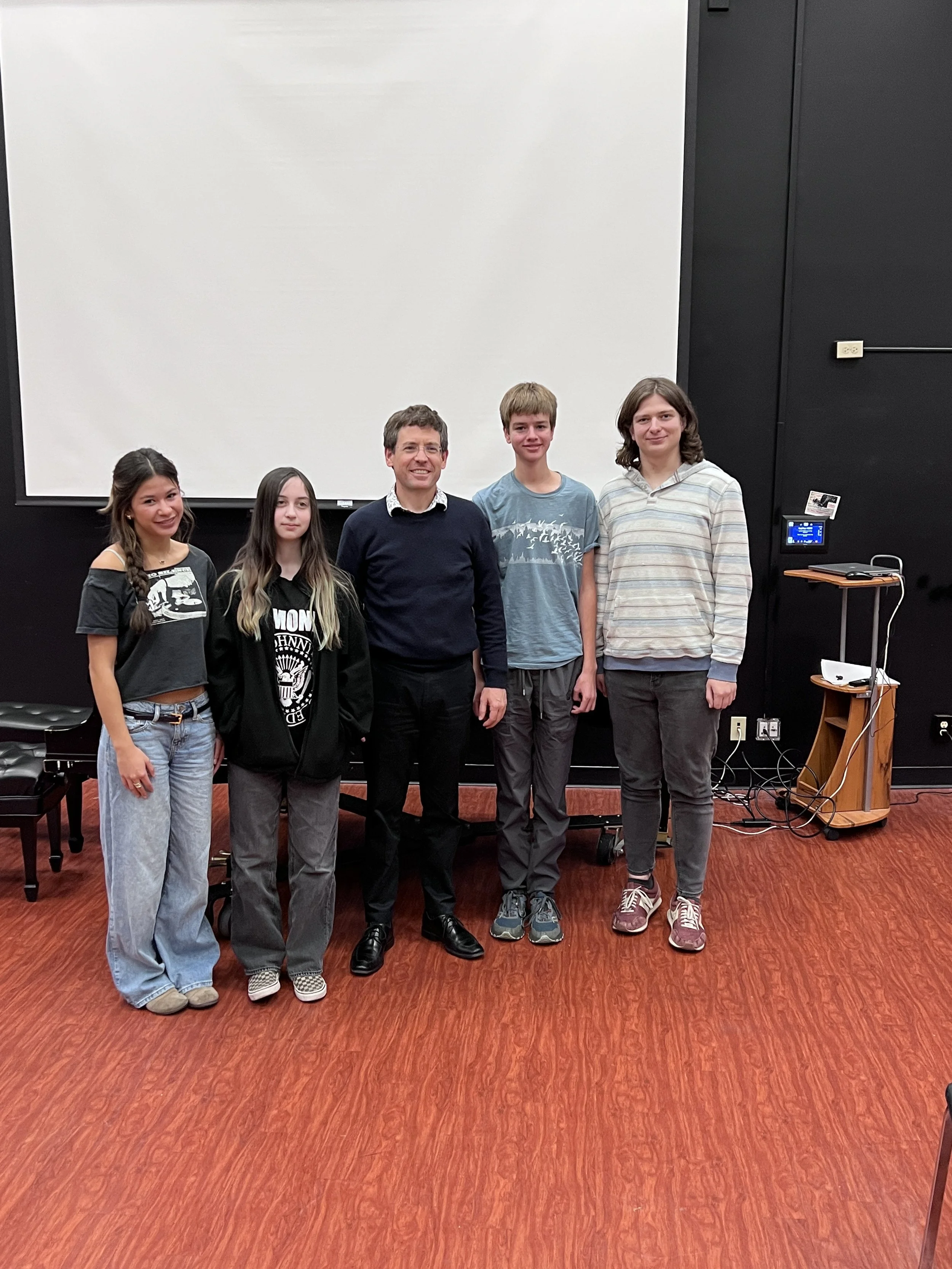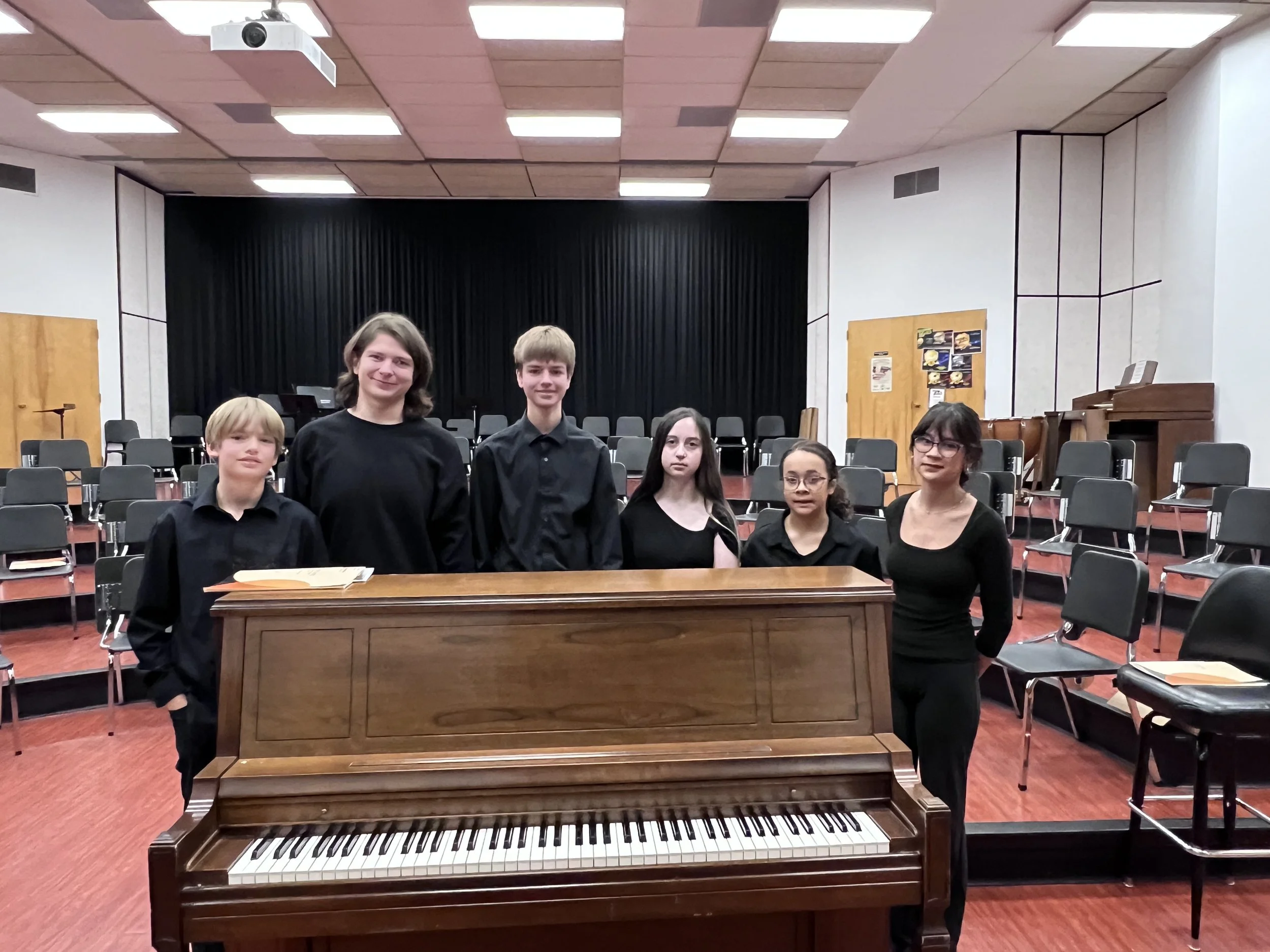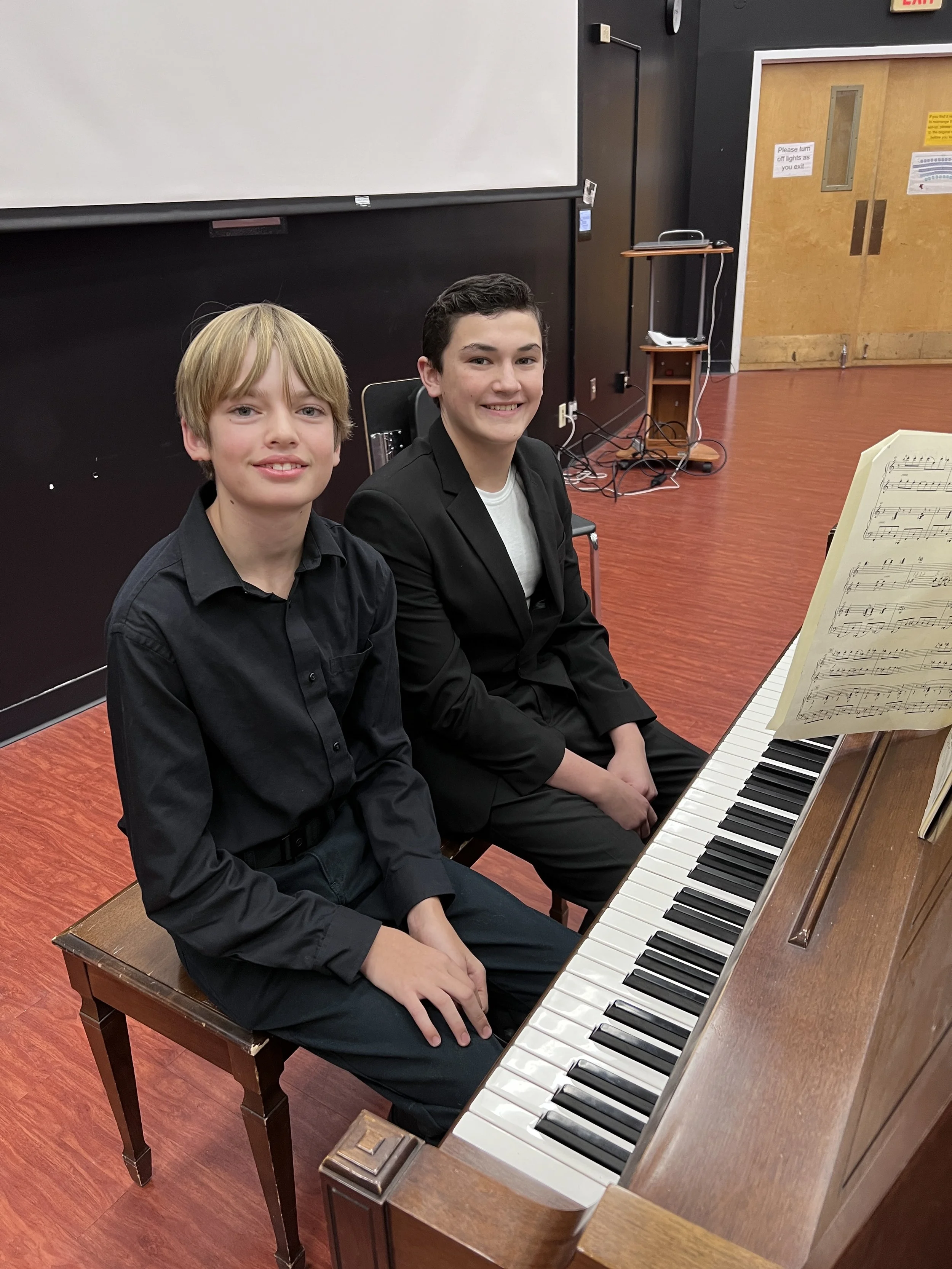Mile High News
Making Musicians
The Pueblo Keyboard Arts Festival
The photo above is of the students who participated in the PKAF Composition Masterclass. Abby Frank, Maddy Hall, Dr. James Wilding, Seth Wilson and Mads Cooreman shared their original compositions Dr. Wilding provided wonderful advice on how to make their compositions even better.
To the right, are photos those who played in the Saturday Monster Concert. Our theme was based on the celestial bodies such as the moon and those images taken by both the Hubble and James Webb telescopes. Compositions by Hirayoshi Takekuni and Celeri Haruhata were played by teams of two. We received glowing




